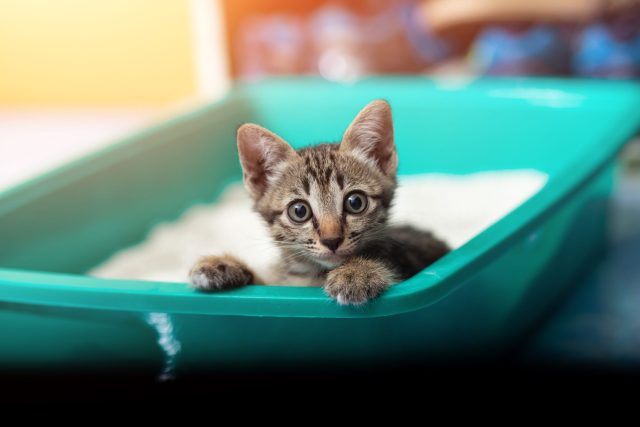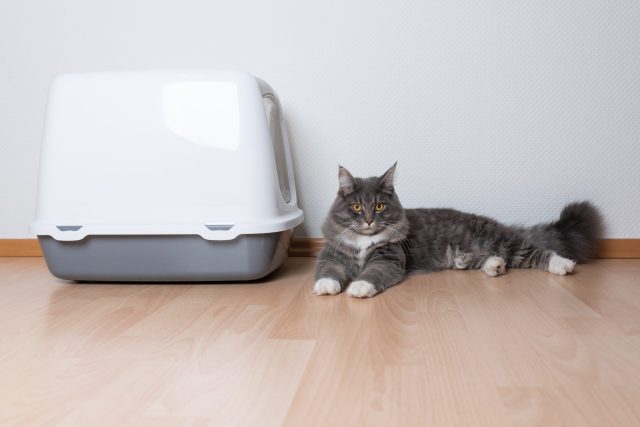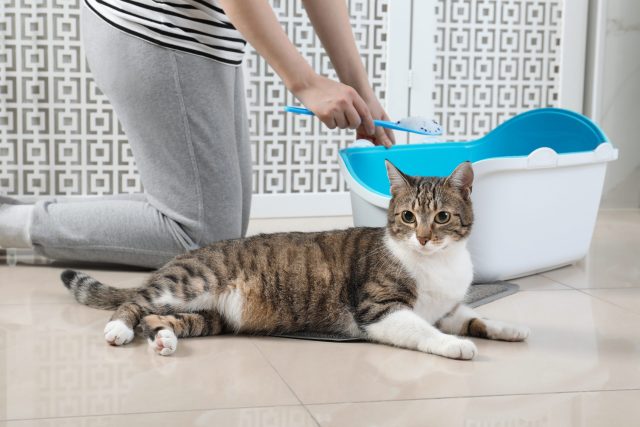Cats are fastidious creatures who use their waste to send territorial messages to rival cats. They can develop aversions to an area that’s not kept clean and has too many odors. They deserve a clean bathroom just like we do.
Let’s face it, we don’t want to clean up cat poop more than is absolutely necessary! So how clean is “clean enough”?

Factors that Affect Litter Box Cleaning
It depends on the individual cat to a degree. Some cats don’t seem to care about a clean box while others won’t use a box that’s even a little soiled. But since there’s no such thing as a cat that prefers a dirty box, keeping it very clean is a good idea.
Some cats don’t like the noise and automation of self-cleaning boxes, but these gadgets can make this job much more regimented. Litter Robot is one of the many self-cleaning litter boxes that make a cat parent’s job easier. In rare cases, cats can be trained to use a toilet, which may make cleaning even more efficient. Yet, the preferences of you and your cat matter most when choosing where they’ll do their business.

Related: 8 Best Self-Cleaning Litter Boxes
The type of litter can also influence how often you should clean the litter box. Cats may be pickier about some litter types over others. Clumping litter is easy to clean, but not all remnants are removed with the clumps. So, you’ll need to strip the box down and replace the litter frequently. In some cases, crystal litter is a cleaner alternative.
How Often to Clean the Litter Box
A general rule is Scoop daily, Strip weekly, especially for clumping litter. Scoop the poop when you see it and replace the litter about once a week or as often as the packaging suggests. Crystal litter can be changed less often than clay litter, sometimes as little as once a month. Some litter types might not require scooping, but they’ll definitely need a daily dump out and weekly scrub.

The type and age of the litter box itself can affect the cleaning routine. Older, softer plastics can take on odors and require more frequent dumping and washing. Dedicate a scrub brush just for litter box cleaning and use a mild detergent without a strong fragrance. Afterward, rinse it thoroughly. Replace the box completely if it’s scratched because even small scratches can trap odors that are offensive to cautious cats.
If you can create a habit out of litter care, your cat will thank you by choosing to keep it all in the box! However, if your cat is doing their business outside the litter box, consult your vet first to make sure an underlying health concern isn’t to blame.
Do you love cats? Find us on Facebook by clicking here.

